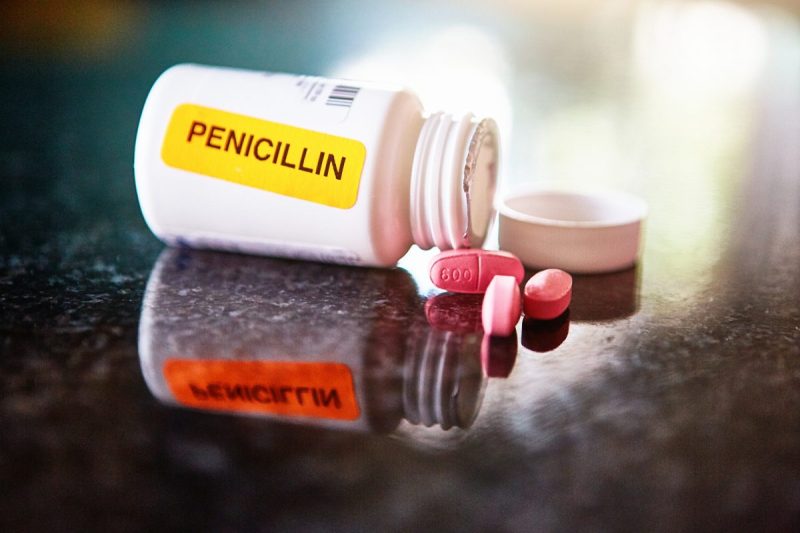Penicillin is a drug belonging to the beta-lactam class of antibiotics that has been extensively used to treat various bacterial infections in dogs. Since its discovery, the drug has played a crucial role in veterinary medicine — much like it has in human medicine — combating bacterial diseases that were once considered untreatable. Here’s what you should know about penicillin’s uses, dosage, and side effects for dogs.
Uses of penicillin for dogs
Penicillin for dogs is primarily used to treat bacterial infections. It is derived from the Penicillium fungi and works by inhibiting bacterial cell wall synthesis, leading to the destruction of the bacteria. It is particularly effective against infections caused by gram-positive bacteria, such as Staphylococcus, Streptococcus, and Clostridium species, and some gram-negative bacteria. Some of the common conditions for which vets might prescribe penicillin include:
- Respiratory infections
- Skin infections
- Urinary tract infections (UTI)
- Gastrointestinal tract infections
- Ear infections
- Leptospirosis
It’s also used in cases of septicemia and meningitis, among other conditions caused by penicillin-sensitive microorganisms. Moreover, vets may prescribe the medication after surgeries to prevent potential infections.
Dosage of penicillin for dogs
While it’s possible to penicillin dosages for dogs online, never give penicillin to your dog without consulting your vet.
Penicillin is widely recognized under names such as penicillin G, Pen G, or procaine penicillin. You can administer it in various forms, including injectable — into the muscle or vein — as an oral tablet, or as a liquid syrup. Oral versions are less commonly prescribed and should be taken on an empty stomach to enhance absorption, as food can interfere with this process. To prepare the syrup, dissolve penicillin powder in water. Keep this mixture in a refrigerator and use it within 14 days to ensure its effectiveness. Remember to store oral tablets and powders away from direct sunlight and at a temperature between 68-77°F.
Generally, veterinarians prescribe dosages depending on the dog’s body weight, administered every 12 hours. The duration of the treatment usually spans from seven to 14 days. However, it can vary based on the severity of the infection and your dog’s response to the medication. Always complete the full course of antibiotic treatment even if your pet seems to have recovered. This is because premature discontinuation can result in relapse or antibiotic resistance.
It is important to note that currently, Penicillin V — the oral form approved for use in humans — is not FDA-approved for veterinary use. Nonetheless, in specific situations, veterinarians are permitted to prescribe certain medications approved for humans to animals. This practice is referred to as “extra-label” or “off-label” use, meaning the drug is being used in a way not specified on its official label. It is up to your vet to decide if this medication is suitable for your pet’s condition.
Side effects of penicillin for dogs
Most dogs tolerate penicillin well. However, it’s important to be aware of potential side effects such as:
- Vomiting
- Diarrhea
- Loss of appetite
- Bad breath
- Hair loss
- Swelling at the injection site — for injectable forms
- Allergic reactions
In some instances, side effects like gastrointestinal issues can be alleviated by giving the medication alongside food. However, always seek advice from your vet before making any adjustments to how you give the medication. It’s also important to note that not all dogs are suitable for penicillin treatment. Dogs with known allergies to penicillin or other beta-lactam antibiotics should not be given this medication. Furthermore, special care is required when treating pregnant or lactating dogs with antibiotics.
Penicillin can interact with certain medications, including some antibiotics, immunosuppressive drugs, and certain medications used to treat gout. Make sure to inform your vet about any other medications your dog is taking to avoid adverse reactions.
If you happen to miss a dose of penicillin, consult your vet for advice. Typically, they might suggest giving the dose as soon as you recall, unless it’s nearly time for the next dose. In that case, they might advise skipping the missed dose and continuing with the regular dosing routine. Avoid giving any extra or double doses to your pet.

